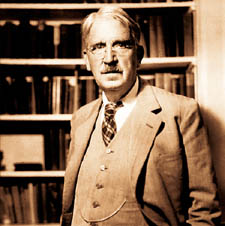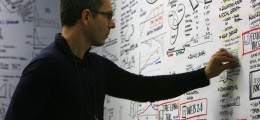In his work as an educational theorist, John Dewey believed that discovery-based education yielded the best learning. By allowing learners to connect with information through participation and experimentation they engaged more fully and identified new ideas and conceptual patterns through the interaction. In addition, the brain activity is heightened when the information presented is slightly ambiguous rather than explicit. By leaving “gaps” in the information and some “fuzziness” in the details, you encourage the learner to use their brains to fill in the blanks. By doing this, their creativity and imagination is sparked and the learner is better able to catalogue and retrieve information easily in the future.
I believe the same principles apply when engaging people in process improvement. If your goal is to create a culture of continuous improvement, it is critical to structure the environment and daily processes to promote discovery-based learning. Similar to Dewey’s findings in education, the key to driving high levels of creativity, initiative, and ownership in the improvement process is to leave the details of the plan “fuzzy” and create opportunities for people to struggle and identify new ways to accomplish organizational goals. The trick is to allow people the time, resources and latitude to take ownership of the issues, tinker with new process possibilities and discover how creative they can be. The tradeoff for allowing people the opportunity to discover their own solutions, is that you create a powerful group of explorers who have confidence in their ability to take risks to accomplish stretch goals while at the same time learning at an exponential rate.
One of the difficulties in implementing this approach to learning, is finding the right balance between being crystal clear about your expectations for results while at the same time being ambiguous enough to allow the learner to take ownership of the details and exercise autonomy in the creation process. While I have yet to achieve a perfect balance, I think it is wise err on the side of allowing people to struggle with ambiguity rather than rest in clarity.
“The belief that all genuine education comes about through experience does not mean that all experiences are genuinely or equally educative.” – John Dewey




This is what makes the perfect case against top down management. As soon as you strip the engagement and intrinsic reward of discovery on the job you lose so much. Great stuff Mike.
Thanks for the comment…
Hello!, Very interest angle, we were talking about the same thing at work and found your site very stimulating. So felt compelled to com?ment a little thank you for all your effort. Please keep up the great work your doing!
Thanks for the comment. Would like to hear more about what you are doing…